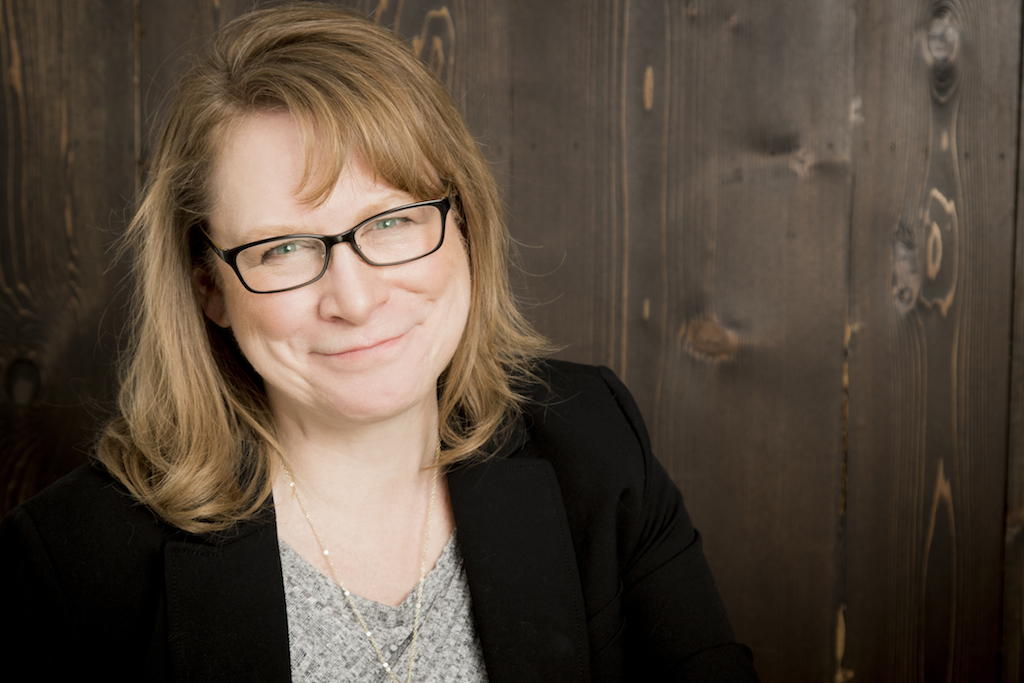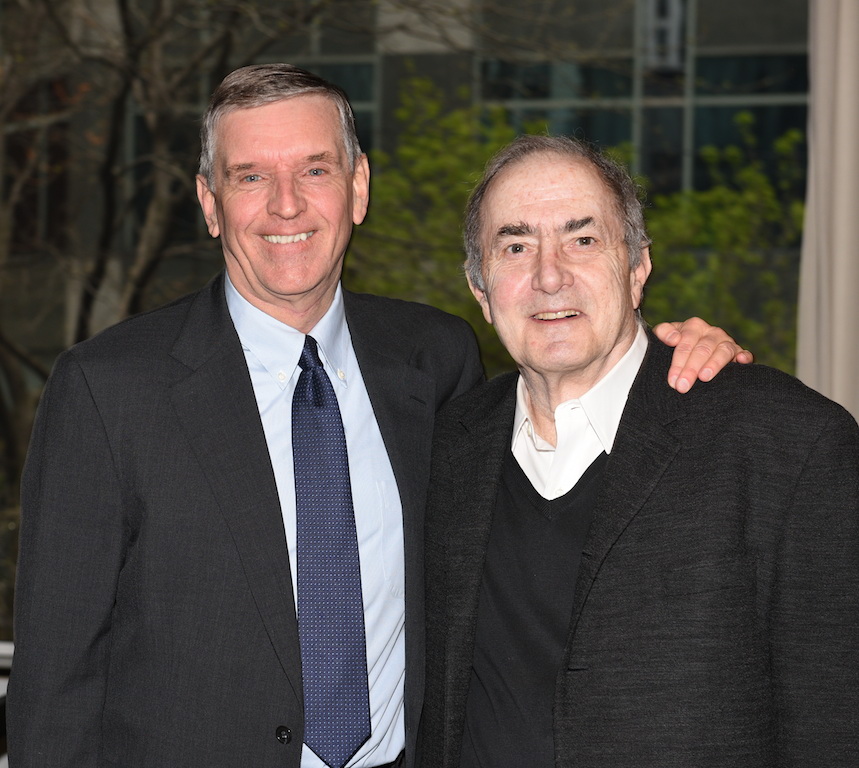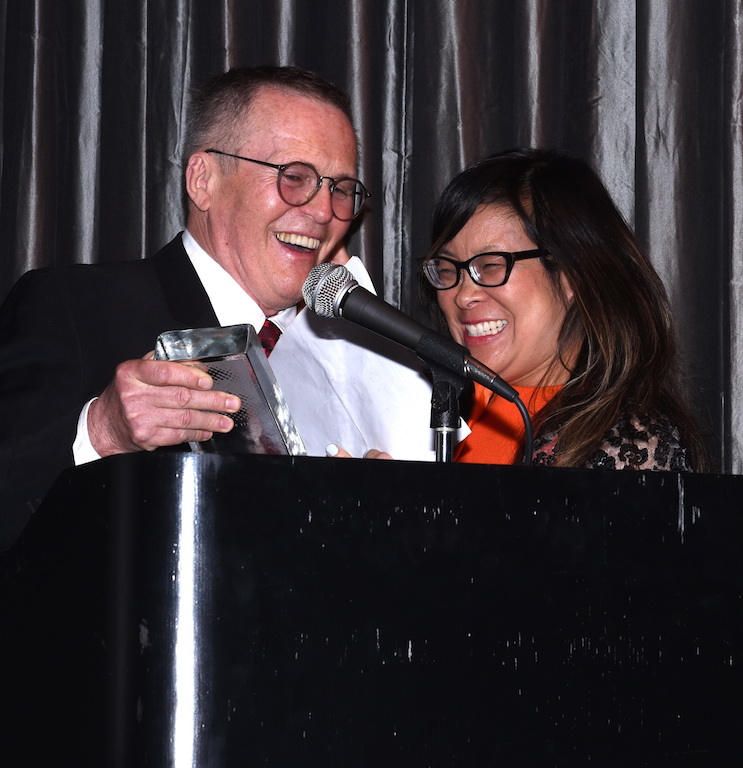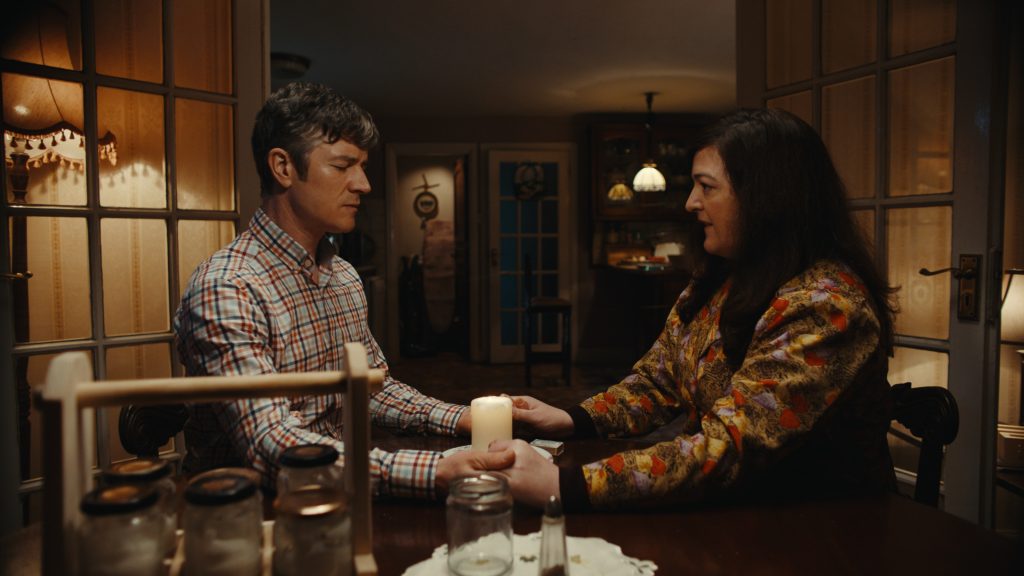
BY JUDY CARMACK BROSS
Editor’s note: We continue our salutes to non-profits and individuals responding with inspiring approaches during this time of COVID-19.
“This crisis fully allowed the Facets staff to unshackle from mission interruptions and be allowed to focus on our core: finding, exhibiting and discussing brilliant international and independent films,” explains Karen Cardarelli, Facets Executive Director.

Karen Cardarelli.
Cardarelli joined Facets just months before the virus challenged non-profits to change their whole way of operations. The organization was still grieving the July death Milos Stehlik, who founded Facets in 1975, and facing its fundraising goals. Cardarelli, co-founder and former executive director of Emerald City Theatre, shared with us not only her action plan for the challenges the organization faces in the context of the current pandemic but also favorite movie choices, her thoughts on the future of film, and what’s ahead for Facets’ much beloved Chicago International Children’s Film Festival.
How is Facets is moving forward?
Our spring gala is postponed, and the daily needs of our facility are minimal. The path is cleared to just focus on finding and talking about great films. That focus has truly opened the door for this team to show off their innovative spirit. Two weeks ago we launched Facets Virtual Cinema with the new acclaimed film Earth. Since early April we have been releasing a suggested watch list each week from a different staff member. Next we’ll be piloting an online animation and coding workshop for ages 9 plus. All that has happened within 4 weeks from concept to roll out because we’ve been given space to focus.

Screen Gems Gala 2019 honoree Kevin Bell and MC Rick Kogan. Photo by Jennifer Girard.

Deborah and Helmut Jahn, Madeline Halpern, and Ron and Anstiss Krueck at a past gala. Photo by Jennifer Girard.
You had been Executive Director of Facets for just a few months and then the pandemic happened. How has it affected the necessary learning curve?
It’s prioritized the need to look far forward, meaning two to five years out. Just like other arts organizations, embracing that when we reopen, we need to be a different organization. Or rather understand how to deliver our mission in ways previously unexplored. It’s not just being my job to plot our future, but everyone on the staff and board has that role now.
Facets and films are synonymous. What are your thoughts on the future of how people will be watching films when all of this is over?
I believe this has expanded how we watch films. Our founder, Milos Stehlik, embodied the idea that the experience of watching a film isn’t complete until you’ve been able to talk about it. Facets has a long history of enabling space for that to happen, and we’re going to continue to do that. Now we are getting comfortable with having those conversations over Zoom or inviting dialogue in our blog posts. But we will want them in person again too. When Facets can reopen, our film community will exist both through online programming as well as safe, in-person experiences. I come from a theater background and know full well nothing replaces the energy of face-to-face community!

The late Milos Stehlik awarding honoree Lisa Lee at a past gala. Photo by Jennifer Girard.
Tell us about the documentary Earth that you are sharing with educators.
Earth is an extraordinary documentary for students learning about engineering, or anyone fascinated with earth science. We put together a special campaign to help educators and students in those areas examine this film and even be a part of a Q&A with the director. This is another example of being able to just focus on the mission. We had time to think through who will care deeply about the film and how can we push out more ways they can go deep with that film’s experience.
The distributor let us know of the 80 organizations across the country, Facets has the highest gross by far. I think the speaks to the expansiveness of our membership and email list as well as to the innovative ways we are seeking for people to discuss the film virtually.

Still from Nikolaus Geyrhalter’s Earth (2019), KimStim.
What are some of your ideas about how you will continue to be a vital voice to students in both Chicago and the suburbs?
I think we have two jobs here. We have to figure out how to transition our programs to the internet—we have to find the right technology, which means it has to support storytelling techniques and the ability to personally connect. The next thing we need to do is connect with educators, students, and parents and hear what they need. I suspect this year’s children’s festival needs to find ways to address the emotional stress Chicago’s youth are feeling during this crisis. Film is a great starting point to have those discoveries. In May we’ll be piloting a virtual after-school workshop that teaches animation through coding using an MIT-developed free software called Scratch.

Still from Ainslie Henderson’s Archie (2019), winner of the Facets’ Chicago International Children’s Film Festival Best of the Fest award in 2019.
Begun by Facets in 1983, the Chicago International Children’s Film Festival (CICFF) was the first festival of films for children in the United States to recognize excellent and culturally diverse films. From the first, Facets had independent juries of children and remains the largest such festival in the world, featuring films and videos from over 40 countries. It was the first Oscar-qualifying children’s film festival in the world.
Looking forward to the Children’s International Film festival, what are your plans?
In the context of ‘never let a crisis go to waste,’ we have the opportunity of time. The festival will happen this November. Right now we are listening to our festival colleagues around the world and learning the various exciting ways we might deliver the festival. CICFF is extremely important to independent storytelling: we are one of only two U.S. festivals that are Oscar-qualifying, which means we attract highly talented filmmakers who are looking for their breakthrough.
Ann Vikstrom, our festival director, does a remarkable job leading a team to look hard at each of the 600+ submissions and put in front of our audience the 250 most inspiring, artful, and thoughtful films. The festival might be delivered through a mix of in-person and online approaches. It will be the first in its 37-year history. But that means the audience for this international festival, for the first time, will actually be international. Can you tell we are excited?! Our official dates are November 13-22.
Are there films you yourself have been watching and would recommend our readers to watch now?
I would definitely refer readers to the staff watch lists we’ve been publishing on our blog. I’m less cerebral in my choices. My two picks I can’t stop talking about right now are Extra Ordinary, a paranormal horror comedy currently streaming on Facets Virtual Cinema, and The Biggest Little Farm, highlighted in Chicago’s own One Earth Film Festival, which is a documentary about a filmmaker who marries a chef and creates a vision for a utopian sustainable farm. I laughed and I cried!

Extra Ordinary.
Postponing a gala, curtaining projects in our schools, temporarily closing your theater with its devoted fans—all of this must have been a huge challenge. How have you been able to adapt?
Technology! We had to catapult ourselves technologically into the 21st century. When I arrived in January, all staff was working from 10-year-old desktops attached to ethernet cords and a server that sat in a corner. We were mid-process of drafting a four-month plan that would shift everyone to laptops and working in the cloud. Suddenly with the stay-at-home order, the plan needed to be executed in 4 days!
Our international children’s film festival was just ramping up. About 20 interns were scheduled to start in a matter of weeks, and summer camp planning had started, in addition to regular activities with the cinema, store, and memberships. We could not slow down!

A media educator works with campers to set up a shot at Facets Film 101 summer camp, photo courtesy of the Comer Family Foundation.
Thankfully, a recent donation from The Service Club allowed us to immediately access 20 laptops. We handed each staff member a laptop, said our in-person goodbyes, and shifted to new work-from-home protocols while simultaneously learning how to log on to the new world of Office 365 with cloud-based file sharing and Zoom calls. The urgency of the moment and everyone’s willingness to learn allowed us to be a fully functioning team again in less than two weeks. It truly was a moment to just close your eyes and jump.
What is your definition of leadership in these self-isolating times. Coming into a new organization and just getting to know your team, and then being disbursed to remote locations couldn’t have been easy.
When I think about defining leadership, I think about the qualities a good leader has to have in their toolbox. And I think the art of leadership is knowing when to tug on what quality or skill, and at what moment. You have to be a cheerleader of the organization, but at points, especially in crisis, you also have to be the voice of transparency, and that may mean you are preparing staff and constituents for tough days ahead.
You have to lead with emotion, which doesn’t mean it’s ok to freak out in front of everyone, but it can be helpful to share if you, as a leader, are struggling a little. And, it is even better if you can speak to how you are working through it. Emotional leadership should also give space to let your team talk about their struggles. This can be therapeutic and make you a tighter team.
A leader of course, has to have a vision for the organization’s future. But that vision has to be informed by the whole team: your staff and board. Which means being a good listener and a superb ‘asker of questions’ need to be in that toolbox. And maybe most of all, you have to see the stress points your team is feeling and quickly, without delay, lean into those conversations. I’ve been very inspired by many of our leaders right now. I am in awe of how they communicate with transparency and caring. That careful balance builds trust. I love that.
Sometimes you do have to close your eyes and just jump. Facets, like so many of our Chicago non-profits, is finding ways, with its leadership team, to hold their mission steadfast as they constantly try new options. Classic Chicago salutes you, our non-profits, and what you are doing to boost your community.
For more information about Facets, visit facets.org.







